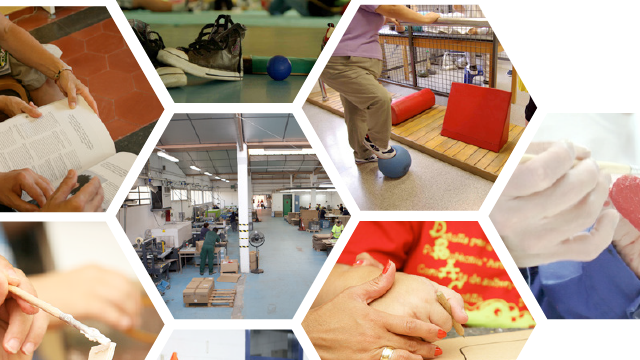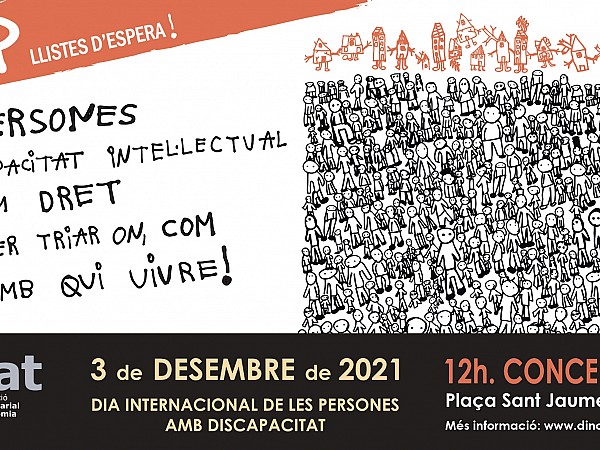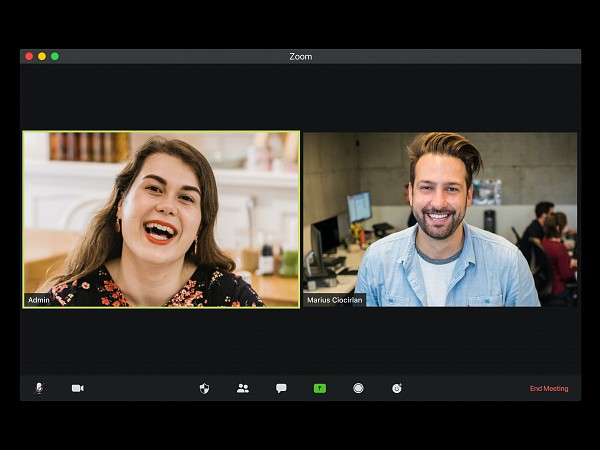AEES DINCAT groups 226 non-profit social initiative entities throughout Catalonia, of which 20 in the counties of Girona
AEES Dincat argues that continuity must be given to the current model during the last 50 years where non-profit social initiative entities, taken over by users and families, have attended to people with intellectual disabilities in Catalonia with a vocation to public service
This attention has been based on the principles of solidarity, personalized and integral attention to the people, respect for their rights, promotion of their personal autonomy and the quality and continuity of the service. The attention methodology that is applied is centered on people and has become a successful model widely recognized and replicated by other sectors.
Initially, when services for people with intellectual disabilities did not yet exist, the funding came from the charity, later on it was advanced with rights and it was passed to subsidy funding that was reserved to entities of A non-profit social initiative under the Social Services Act. Then, it went on to management contracts with the type of bidding without advertising that, despite being in the framework of public procurement, are exclusively for non-profit social entities.
AEES Dincat highlights that during all these years, a model for the provision of social services for people with intellectual disabilities rooted in the territory and centered on people has been woven together with the public administration. "The joint work of the entities and the administrations has been a success model capable of guaranteeing the welfare of people," says Manel Palou, president of AEES Dincat.
Only 1.32% of the services destined for people with intellectual disabilities are provided from the commercial initiative and the rest directly by the administration and by social entities. That is why, according to Palou, "a stable framework of concerted action is needed, apart from public procurement", for the provision of social services to support people with intellectual disabilities reserved for non-profit organizations .
But this reality has affectations beyond the scope of intellectual disability. We are facing a series of legislative changes that require a joint sector response. For this reason, from the Confederation, a member of which we are a member, we are working to promote a legislative proposal that regulates the provision of care services to people with exclusivity for non-profit organizations, as has happened in others autonomous communities.
Given that the decision taken now will determine the future and quality of care for people, it is important that appropriate measures be implemented to meet the demands of AEES Dincat and the Confederation, thus avoiding the entry of companies of a commercial nature.



